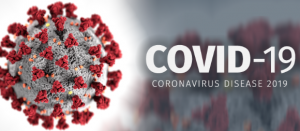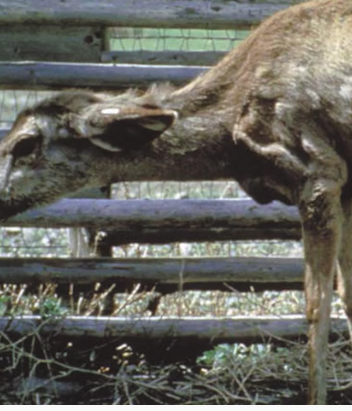Staff report
There have no confirmed cases in Kentucky of coronavirus, known as COVID-19, and efforts are underway to keep it that way.
“I want to reassure everyone that your state government, your local health departments, everyone, is prepared and is ready to address this issue head-on,” Beshear said this week.
Beshear said public health officials have been contacting and monitoring anyone who has arrived in Kentucky from China during the last 14 days to self-isolate, avoid public gatherings and report their temperature and any symptoms daily.
“Thus far we’ve monitored over 100 people,” he said. “All but one has been illness-free. The one person who had symptoms tested negative.”
The governor announced the state has established a new website, kycovid19.ky.gov. “The site will help to answer public questions and support our medical community as information becomes available on the site.”

He says the State Health Operations Center has been activated, “which means we are focused on preparedness, planning and response activities.
Eric Friedlander, Acting Secretary of the Cabinet for Health and Family Services, said, “We are prepared to fulfill our Cabinet’s mission, to protect Kentuckians and to enhance their health, safety and well-being.”
He said state government agencies are working together on the issue. “We have procedures in place for how we collaborate with the Kentucky Emergency Management System. This entire network has been built to protect every Kentuckian.”
Department for Public Health Commissioner Dr. Steven Stack said the state is working with the Trump Administration to coordinate the response to COVID-19.
He also noted, “The potential global public health threat posed by this virus is high, but the immediate risk to Kentuckians is low.”
Beshear described some of the ways to keep COVID-19 from spreading, calling them similar to those with flu. “Staying home if you don’t feel well, don’t come to work if you are sick and properly wash your hands.”
The Kentucky Medical Association (KMA), the Kentucky Foundation for Medical Care (KFMC) and the Foundation for a Healthy Kentucky are urging Kentuckians to practice known flu prevention protocols in light of the Centers for Disease Control (CDC) warning that the novel coronavirus is expected to spread within communities in the United States.
“While novel coronavirus presents a low risk currently to the majority of populations within the U.S., we do know that the virus can spread rapidly and is transmitted primarily through tiny air droplets and close contact with an infected person,” said KMA President and Foundation for a Healthy Kentucky Board Chair Brent Wright, M.D. “However, the good news is we already know how to prevent the spread of such a virus, since protocols for it are nearly identical to those for the flu, which remains a much greater threat to public health currently.”
While the flu vaccine will not prevent novel coronavirus, having the flu weakens your immune system, leaving you more susceptible to contracting other illnesses like coronavirus. Seasonal flu is continuing to circulate across Kentucky, with more than 1,800 cases confirmed just last week and a total of 66 deaths so far, so it isn’t too late to get a flu shot, even if you’ve already had a bout of flu this season.
Symptoms of coronavirus also closely resemble influenza, so patients are encouraged to consult with their doctor if they are experiencing fever, cough and shortness of breath.

Health officials have also emphasized that proper handwashing is the most effective way to prevent the spread of both novel coronavirus and influenza.
“Washing your hands with warm soap and water, for at least 20 seconds, as frequently as possible, helps prevent the spread of germs more than anything else,” said Foundation for a Healthy Kentucky President and CEO Ben Chandler. “Covering your mouth when you sneeze or cough and staying away from others when you are sick are also common-sense practices we should be utilizing during all seasons, but particularly to prevent respiratory illnesses like the flu and coronavirus.”
“While coronavirus is scary, we can be confident that we are doing everything we can to prevent it by treating the threat of the virus the same manner we do the flu,” said Dr. Wright.
There is currently no vaccine to prevent coronavirus disease 2019 (COVID-19). The best way to prevent illness is to avoid being exposed to this virus.
However, as a reminder, CDC always recommends everyday preventive actions to help prevent the spread of respiratory diseases, including:
• Avoid close contact with people who are sick.
• Avoid touching your eyes, nose, and mouth.
• Stay home when you are sick.
• Cover your cough or sneeze with a tissue, then throw the tissue in the trash.
• Clean and disinfect frequently touched objects and surfaces using a regular household cleaning spray or wipe.
• Follow CDC’s recommendations for using a facemask.
◦ CDC does not recommend that people who are well wear a facemask to protect themselves from respiratory diseases, including COVID-19.
◦ Facemasks should be used by people who show symptoms of COVID-19 to help prevent the spread of the disease to others. The use of facemasks is also crucial for health workers and people who are taking care of someone in close settings (at home or in a health care facility).
• Wash your hands often with soap and water for at least 20 seconds, especially after going to the bathroom; before eating; and after blowing your nose, coughing, or sneezing.
◦ If soap and water are not readily available, use an alcohol-based hand sanitizer with at least 60% alcohol. Always wash hands with soap and water if hands are visibly dirty.




















